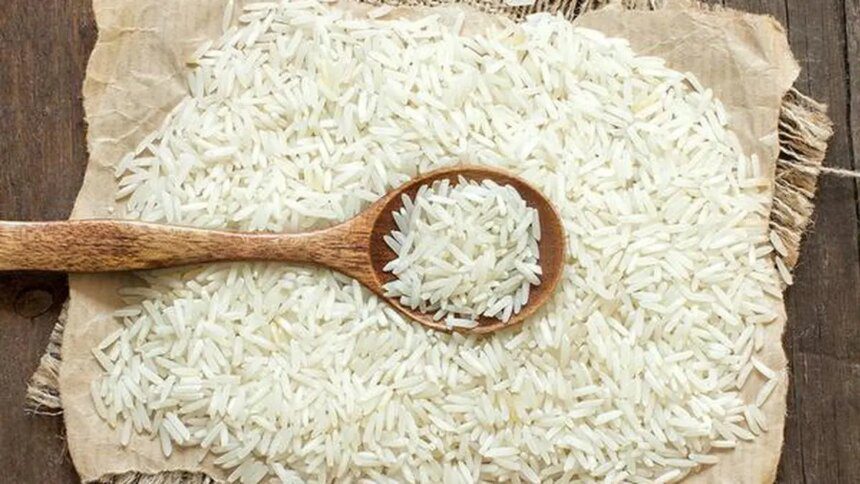Hyderabad-based Shakthi Seeds’ efforts to promote its Basmati variety, known as Taj hybrid, have revealed significant shortcomings in India’s seed regulations, allowing unapproved Basmati varieties to enter the market and undermining the integrity of this esteemed grain.
Reports indicate that various seed companies are distributing Basmati seeds in non-Geographical Indication (GI) states such as Madhya Pradesh and Rajasthan. These companies exploit existing laws that do not mandate GI-specific approval prior to seed sales.
Despite multiple trials, the Taj hybrid (IET 28579) has consistently failed to meet official standards, as shown in government documents reviewed by businessline. Studies conducted by the Indian Council of Agricultural Research’s (ICAR) Indian Institute of Rice Research indicate that the hybrid performs poorly in cooking tests, exhibiting a low elongation ratio and unfavorable consumer feedback. The Variety Identification Committee (VIC) rejected the Taj hybrid in 2022, 2023, and again this year due to these deficiencies.
In response to Shakthi Seeds’ complaints about these rejections, the Centre requested a report from ICAR’s Indian Institute of Rice Research (IIRR) regarding the Taj hybrid last month. A sub-committee of the Central Seeds Committee subsequently opted to postpone a decision on the matter.
The IIRR reported that the Taj hybrid underwent extensive testing across various locations in the designated Basmati GI region as part of the All India Coordinated Research Project on Rice (AICRPR), involving multiple trial stages from 2019 to 2021. Despite these rigorous evaluations, the hybrid was found to have a low elongation ratio (1.57) and poor rankings in panel tests conducted at the Indian Agricultural Research Institute (IARI) in New Delhi and the Basmati Export Development Foundation (BEDF), Modipuram. Consequently, the hybrid was not recommended for identification by the VIC in several meetings due to its inferior grain quality.
In the latest VIC meeting, minutes confirm the committee’s critical evaluation of the proposal, reiterating prior recommendations that the entry (IET 28579) fails to meet the minimum quality standards for Basmati rice.
The Basmati paddy seed market is valued at over ₹3,000 crore. According to S Chandrasekaran, the author of a book on Basmati GI, maintaining the authenticity of Basmati rice necessitates rigorous controls and regulations for seed distribution. This includes ensuring authenticity through DNA and isotope testing.
The GI Registry has defined the geographical areas for Basmati as Punjab, Haryana, Himachal Pradesh, Uttarakhand, Delhi, western Uttar Pradesh (30 districts), and Jammu and Kashmir. Madhya Pradesh has been pursuing a legal battle since 2010 to include 13 of its districts in the GI Basmati zone. The cultivation of this aromatic rice variety has also extended to certain districts in Rajasthan, where farmers are growing Pusa 1121 and Pusa 1509 varieties.
Businessline has learned that Shakthi Seeds is developing and marketing Taj hybrid seeds in non-GI regions, capitalizing on existing regulations that do not require mandatory approval for selling a GI-protected variety. An industry executive noted that while any licensed seed seller can offer seeds under the Truthfully Labelled (TL) category, approval from the Central government is essential for inclusion in the official seed system.
Mohan Lal Yadav, a farmer from Fatehpur district in Uttar Pradesh, reported growing Taj hybrid since 2022, achieving yields of 8-9 quintals per bigha. However, he expressed concern over the seed cost of ₹600 per kg, as he needs 2 kg for each bigha. A local seed dealer selling Taj Basmati in Fatehpur, Barabanki, and Rae Bareli districts confirmed that these seeds are sourced from Hyderabad.
Vidyanath Reddy, director of Shakthi Seeds, stated, “We are not marketing Taj as a Basmati variety since it has not yet received approval. We label it a hybrid rice variety, allowing for cultivation anywhere. With our license from the Uttar Pradesh government, we distribute our seeds, including Taj hybrid rice. Hybrid rice is unconnected to Basmati Geographical Indications.”
Sources indicate that various seed companies are presenting Basmati seeds as hybrid rice in non-GI areas due to ambiguous regulations. An industry expert referenced Pusa Basmati 1121 (released in 2003), which was initially circulated as a Basmati variety before gaining official recognition in 2008.
Another expert noted that this case is not isolated, as numerous Basmati varieties have first been propagated as seeds and then marketed for farming purposes in non-GI areas. Basmati prices in these regions are reportedly lower than those in certified GI areas, highlighting the need to safeguard India’s heritage brand “Basmati” effectively.










